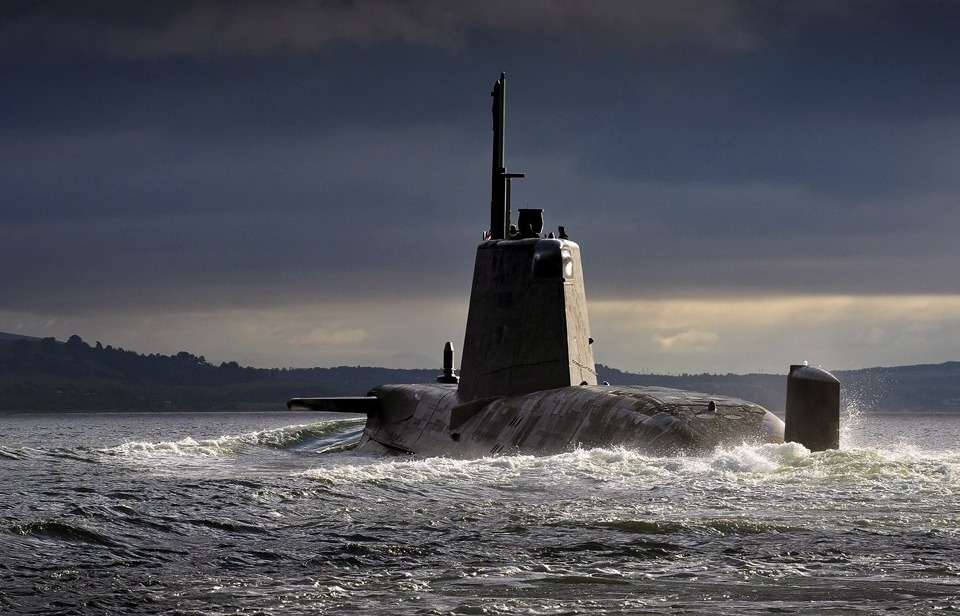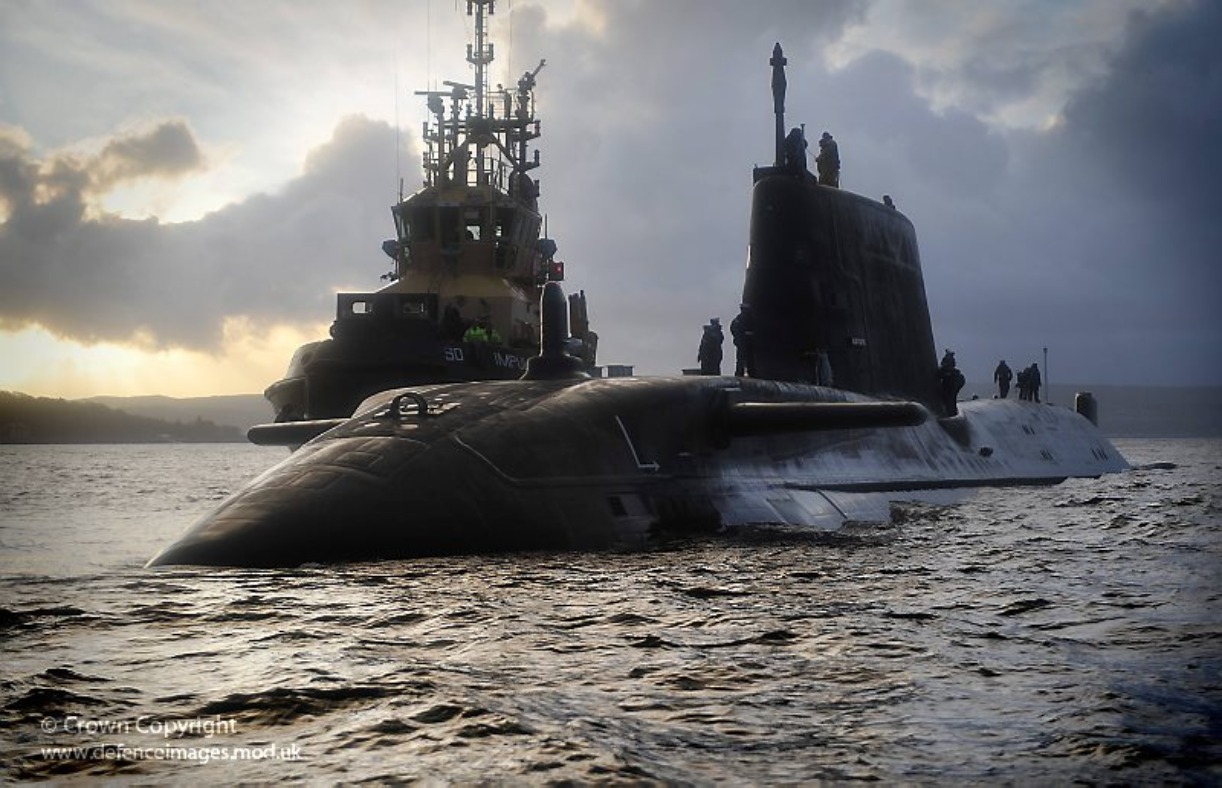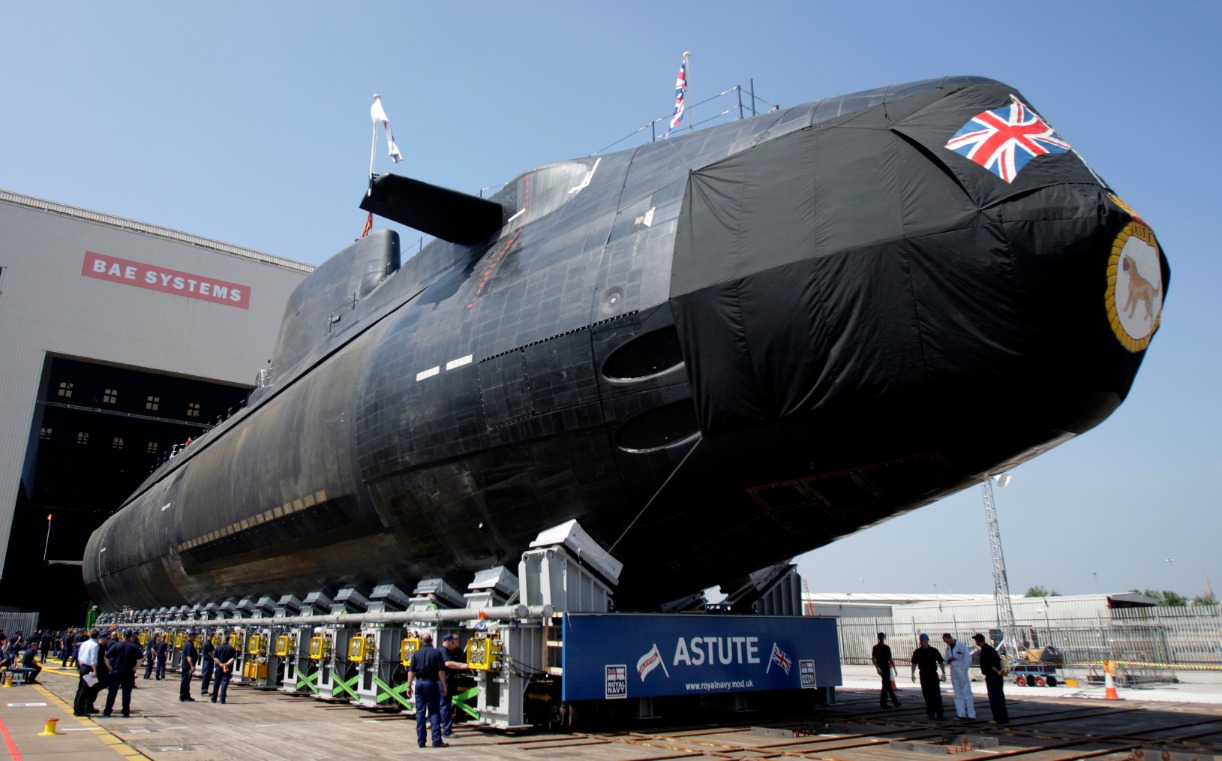"Sir, Our Nuclear Attack Submarine Ran Aground": An Astute-Class Submarine Nightmare
In 2010, the British nuclear submarine HMS Astute ran aground near the Isle of Skye due to navigational errors and procedural lapses.
Summary and Key Points: In 2010, the British nuclear submarine HMS Astute ran aground near the Isle of Skye due to navigational errors and procedural lapses.

-The crew failed to plot their position and had deactivated the radar, leading to a grounding incident that lasted ten hours before the submarine was towed back to port.
-The event resulted in the removal of the captain and disciplinary actions against other officers.
-The Astute's troubled history includes a fatal shooting incident in 2011. Concerns about the British Royal Navy's competence persist, especially regarding the potential impact of advanced electronic warfare, such as GPS spoofing, on future operations.
HMS Astute Grounding: Navigational Failures Expose Royal Navy's Vulnerabilities
Whenever terms like a “catalog of errors” are thrown around by official military sources when describing some event that occurred under their watch – especially when those military sources are understated Englishmen – just know that what they are describing is probably much scarier than it sounds.
Such was the case with the HMS Astute and its unfortunate run-in with a beach on the Isle of Skye.
The Astute is a nuclear submarine belonging to the British Royal Navy. It is 97 meters long and 11.3 meters wide. The boat can dive to depths past 300 meters and carries a crew of 98 (sometimes more). The Astute can cruise at 30 knots while submerged and can remain underwater for 90 days. The submarine was built by BAE Systems at Barrow-in-Furness, Cumbria, and was based at Her Majesty’s Naval Base Clyde.
Surely, you might think, the grounding of the HMS Astute must have happened long ago, well before GPS existed.
Sadly, no. The grounding of the Astute occurred on Oct. 22, 2010.
The Incident
According to the Service Inquiry, the Officer of the Watch did not plot the position of the transfer on the charts, and the prime radar had been deactivated. There were further complications with the ship’s communications.
The Service Inquiry further found an overall non-adherence to correct procedures for navigation and a lack of appreciation for the proximity of danger.
Basically, the crew of the Astute was piloting their £1 billion weapons platform in the dark and had no idea they were precariously close to the beach. For ten hours thereafter, the sub was stuck on a silt bank before it was retrieved and towed back to port by a coast guard tug.
A Catalog of Errors Cataloged
In the aftermath of the event, according to the BBC, the captain of the submarine, Comm. Andy Coles, was removed from command. Royal Navy leadership also disciplined another two officers. After that, they closed up the investigation and scooted themselves beyond that event. The admiralty insisted that, “the incident was not indicative of wider failings within the submarine service.”
Of course, the Royal Navy, like so much of the Anglosphere, has been adrift for more than a decade. While the British have striven to reinvigorate their armed forces – notably their navy – by building expensive and hard-to-maintain aircraft carriers, the service has limped through the 21st century.
As for the Astute, it seems like a cursed submarine.
A year after the vessel ran aground off the coast of Scotland, AB Ryan Donovan murdered Lt. Comm. Ian Molyneux and wounded Lt. Comm. Christopher Hodge. Donovan fired six additional shots from his pistol at visiting local dignitaries who were on a tour of the Astute’s control room.
Unprepared and Speeding Toward Catastrophe
Even that incident should indicate to observers how broken the British Royal Navy is. Yes, it was more than a decade ago. But the crisis of confidence and lack of competence likely persists.
Clearly, the case of the shooting a year after the Astute was grounded off the coast of Scotland was a case of mental illness exacerbated by whatever hostilities the enlisted sailor felt toward the two officers he opened fire on.
The British submarine force is its most important naval element. The flattops that England built for itself were mere vanity projects that may very well break the back of the once-legendary service. Its nuclear submarines are the real backbone of the diminished British fleet.

As such, the Astute’s experience should worry the British with its combination of incompetence and equipment failure.
What Happens If It’s Intentional Next Time?
Let’s flash forward to the modern naval battlefield. Should war with either China or Russia erupt soon, Britain’s submarine force will be essential. These platforms rely heavily on navigational equipment, for example, to operate effectively. Things like GPS downlinks keep the ship operating. But both China and Russia have developed what’s known as spoofing attacks.
These are attacks targeting GPS systems that can trick a vehicle that relies on these downlinks – in this case, a submarine – into thinking it is somewhere that it is not, confusing the operators onboard, and potentially running the boat aground.
Judging from how the crew of the Astute reacted to a “catalog of errors,” how might sailors operating under extreme combat conditions underwater handle spoofing attacks and other forms of electronic warfare directed against their platforms? The answers just might frighten you.

About the Author
Brandon J. Weichert, a National Interest national security analyst, is a former Congressional staffer and geopolitical analyst who is a contributor at The Washington Times, the Asia Times, and The-Pipeline. He is the author of Winning Space: How America Remains a Superpower, Biohacked: China’s Race to Control Life, and The Shadow War: Iran’s Quest for Supremacy. His next book, A Disaster of Our Own Making: How the West Lost Ukraine, is due October 22 from Encounter Books. Weichert can be followed via Twitter @WeTheBrandon.
All images are Creative Commons.
From The Vault


